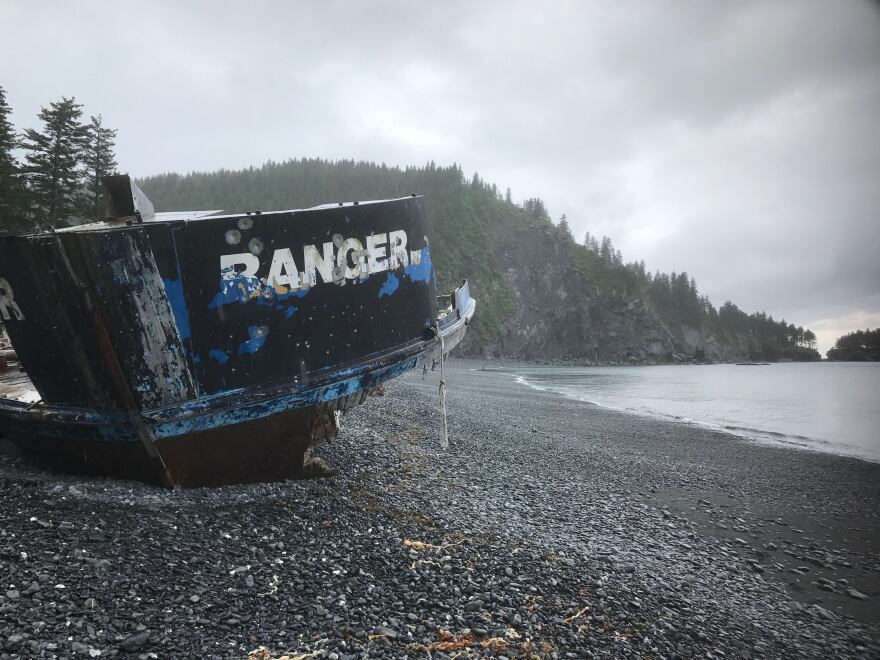Boat and fishing vessel owners will likely be required to meet new registration and title requirements next year. The change is part of Senate Bill 92, which passed through the state Legislature this week. The bill aims to give the state, municipalities and individuals more tools to hold owners of derelict and abandoned vessels legally liable.
The Senate sent the bill to Gov. Bill Walker’s desk Thursday after the House passed the legislation earlier this week.
The bill makes three significant changes. It will make it easier to track vessel ownership via state boat registration requirements and a new titling program. It also lowers the legal bar to hold derelict vessel owners liable and would create a derelict vessel prevention program.
Alaska Association of Harbormasters and Port Administrators Executive Secretary Rachel Lord worked with a statewide task force craft the bill. She said the new registration and title requirements would create a better paper trail for vessel ownership.
“It ends up being people saying, ‘Oh no, that’s not my boat. That’s that guys boat. I sold it to him yesterday for $15 on a bar napkin,’” Lord explained. “It sounds silly and trite, but it happens all the time and all over the state.”
Currently, federally documented vessels are not required to register with the state, but that would change under the new law. Non-federally documented boats over 24 feet would also be required to have a title of ownership.
Homer Harbormaster Brian Hawkins also worked on the state task force. He said the bill would specifically help ports and harbors track down owners of federally documented boats at risk of becoming a problem, which he said tend to be old commercial fishing vessels.
“We didn’t know how many documented vessels were operating in the state, and it’s that fleet that often times would become the future derelict vessels – some of those as they age out,” Hawkins said.
The bill also allows the state and municipalities to impose civil penalties and individuals could take action against owners of derelict vessels in civil court.
Currently, derelict vessel owners can only be charged criminally, but the law also imposes stiffer penalties for those found guilty.
Holly Wells is Homer’s city attorney and is a shareholder at Birch Horton Bittner & Cherot in Anchorage.
Wells helped the task force craft the bill’s language, and she said the legislation not only lowers the legal bar, but it also clears the path for small communities and villages to give proper notice, impound and scrap derelict boats.
“Communities like Homer that have the resources to remove derelict vessels and have the luxury of contacting legal council to help craft local laws have been very lucky because they have been able to address this issue pretty efficiently,” Wells said. “The communities that don’t have those resources haven’t had the ability to take care of the problem. This is a really big step in the right direction.”
The bill also tasks the state Department of Natural Resources with creating a derelict vessel prevention program, which will be funded by title fees.
Hawkins said the program’s largest undertaking would be creating a cradle-to-grave plan for vessels in an effort to make sure they are disposed of properly.
“When you look at the fleet with a critical eye, you will notice it is aging,” Hawkins added. “There are a lot of vessels that are getting in the 30s, 40s, 50-year-old range, and many of these will eventually become vessels that need to be disposed of or something done with.”
He hopes the program will provide more avenues for vessel owners to scrap their boats rather than abandon them in local, state or federal waters.
It’s not clear when the bill might be signed into law, but Gov. Walker has 90 days to either approve or reject the legislation. The bill would go into effect Jan. 1, 2019.


